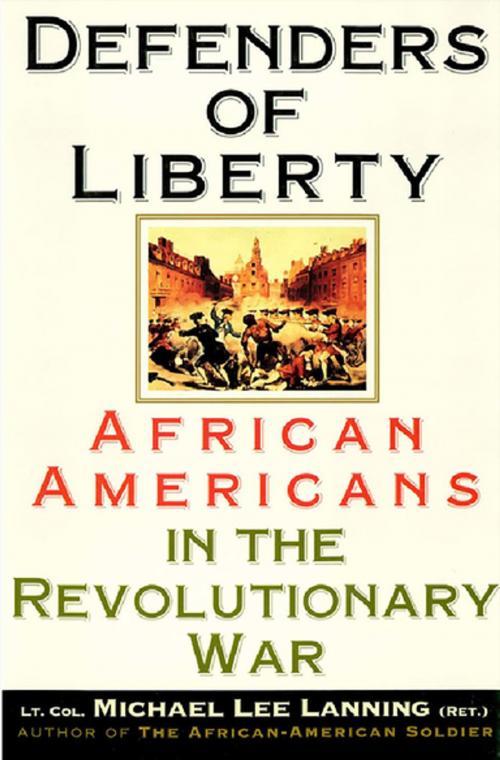| Author: | Michael L. Lanning | ISBN: | 9780806536606 |
| Publisher: | Citadel Press | Publication: | May 1, 2004 |
| Imprint: | Citadel Press | Language: | English |
| Author: | Michael L. Lanning |
| ISBN: | 9780806536606 |
| Publisher: | Citadel Press |
| Publication: | May 1, 2004 |
| Imprint: | Citadel Press |
| Language: | English |
More than five thousand blacks joined the rebel Americans in the war as soldiers, sailors, and marines; many more supported the rebellion as laborers. Their service went largely unrecognized and unrecorded.
Few letters, journals, or other narratives by blacks about the Revolution exist because whites had denied most African Americans an education. White historians of the period, and for years after the war, ignored the contributions and impact of thousands of blacks participants for several reasons. First of all, prejudices were so deeply ingrained that it did not even occur to most whites of the time that blacks had played a significant role either as individuals who fought or labored or as a segment of the population that affected decisions. Prejudices also prevented some who did witness the contributions of African Americans from honestly reporting that blacks could perform equally with whites on the battlefield if given the opportunity. Others did not mention blacks because of the difficulty of explaining why the United States kept half a million men, women, and children enslaved while fighting for independence and liberty."
From Defenders of Liberty, by Lt. Col. Michael Lee Lanning (Ret.)
More than five thousand blacks joined the rebel Americans in the war as soldiers, sailors, and marines; many more supported the rebellion as laborers. Their service went largely unrecognized and unrecorded.
Few letters, journals, or other narratives by blacks about the Revolution exist because whites had denied most African Americans an education. White historians of the period, and for years after the war, ignored the contributions and impact of thousands of blacks participants for several reasons. First of all, prejudices were so deeply ingrained that it did not even occur to most whites of the time that blacks had played a significant role either as individuals who fought or labored or as a segment of the population that affected decisions. Prejudices also prevented some who did witness the contributions of African Americans from honestly reporting that blacks could perform equally with whites on the battlefield if given the opportunity. Others did not mention blacks because of the difficulty of explaining why the United States kept half a million men, women, and children enslaved while fighting for independence and liberty."
From Defenders of Liberty, by Lt. Col. Michael Lee Lanning (Ret.)















